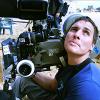Search the Community
Showing results for tags 'university'.
-
Hey everyone, I've been looking for a solid, hands-on introductory class for a while now and I'm looking for some advice, recommendations, tips, things to look (out) for. The program should give me a foundation on which I can build for the coming years. I want to learn the tools and craft, not how to use a particular camera. I've found three solid options so far, and they are: 1- Maine Media Workshops (Maine, USA): 10 week intensive cinematography workshop. PROS: Asked around and this program is definitely solid with some world class instructors. CONS: Extremely expensive. (16k) 2- Global Institute (LA, USA): The foundational programs. PROS: World class program and instructors, located in L.A. CONS: Asked a friend, apparently even the foundational programs are a bit too advanced for someone who's never worked in the camera department. Pretty expensive (expensive at about 10k for a bunch of classes). 3- Afilms (Barcelona, Spain): 3 month Feature Film Cinematography. PROS: Solid program, but not as good as the other two though significantly cheaper. CONS: Starts in a year, that's in quite a long time. I feel like doing this in a couple of months. I don't mind studying anywhere in the world, as long as I can justify it to myself. The class should be technical. I've been curating and improving my eyes for a while now and I'm pretty familiar with filmmaking at many levels, but I want to demystify light (or at least start the process), as I feel it will benefit me greatly as a director. I also feel like shaping light, so being able to DP my own little projects, explore studio photography etc. is something I'm interested in. I'm not under the illusion that I will become a DP after this workshop, I just want to be able to think like one at a basic level, so I can improve myself in the future. Director's showreel if anyone's curious. Thanks in advance.
- 8 replies
-
- 1
-

-
- cinematography
- workshop
-
(and 3 more)
Tagged with:
-
Hi! I wanted to start a series of posts where I could keep track of what is going to University to study film studies or cinematography. Not so many years ago when I was struggling to understand the little words I knew in English I found this forums and I started reading (with a dictionary) every single thing I could. Thanks to the knowledge of a lot of people who were and are on this website I got better as a camera intern and then as a second assistant camera so I hope this post and consecutive posts that I am thinking about writing will help people in the future when they think about: "Should I go to a film school or not?" because they will see all the process that took me from being a non - student to a full time student. So, a little bit about me! As of today, October 6th, 2014, I'm a 33 years old Spanish second camera assistant who left Spain in 2010 after spending a lot of years working on American commercials, American movies, English movies and second units of different things. At that time I was starting to shoot short - films as a cinematographer and probably, hadn't I left Spain, I would be shooting commercials now as a cinematographer.. with very bad quality. The reason why I left Spain is because I wanted to improve my English (which in a 0 to 10 scale was 1) in order to go to study a Cinematography masters in AFI in L.A.. and I almost got there! I applied to AFI for the 2012 / 2013 cinematography course and as they were asking for a minimum of 100 in the TOEFL exam I couldn't get in because my score was 99, yeah! 1 point, but their rules are their rules :) and although I had the recommendations, the support of the Fulbright Scholarship and some other things, they said no. And I'm super happy I didn't get there because I started working for Apple in Cork (Ireland) and I discovered that "the office environment" was kind of interesting (and Apple was paying really really really well for the job I was doing). Also I started to focus a bit more on still photography, which is something I adore and love, and I found out that the more I was shooting, the more I was going towards darkness and colours. But I was missing something while working at Apple and it was the set life :) so I decided to start shooting short - films in Ireland.. and by doing that, I knew that I couldn't work in Apple anymore because I needed to follow my passion, cinematography. While trying to decide what to do I came across the National Film School in Ireland, home to cinematographers like Robbie Ryan, James Maher (member of the forum if I don't remember badly), Piers Mc Grail and so many other interesting ones. I went to the open day and what I saw was a place where I could spend time to create and learn things that I wanted, something that you miss when you are working full time, either in movies or Amazon or Apple.. sure you see loads of lighting setups while working on sets but if you are a 2nd AC, you better be focused on your job unless you don't want to work anymore. So, this National Film School was offering a 4 years Bachelors Degree (Honours) in Film & Production, being the 4th year the one where people choose a specialization. Probably the same kind of course as it is offered in America, Europe and etc so nothing fancy! And I said: Ok! If I can get in 4th year that would be awesome! I will spend 1 year doing what I love, learning things that I don't know, polishing my skills and they will give me a Bachelors Degree even! Plus they got two Alexas and a super new big studio! The decision wasn't that easy, although I had no commitments in life at the moment (no mortgage, no children, nothing at all) the money that I was getting from Apple was a very serious thing and you all know how the world spins! However, after a lot of months of thinking about it I decided to quit my job at Apple and become a student of the university (which accepted me with no problems) because I knew that I needed to pursue my dream. My reasons to go to uni were the following ones: - In University you have all the equipment you need to learn the craft. - You learn! I can't write it any bigger but it is an important point, you learn! - You also make friends and get to shoot a lot so you can try things that you couldn't try in a working environment when money is involved. - You also experiment with film / video if you want to. - You will be focused on YOU and that's THE POINT because nobody else is going to teach you what you don't know that you don't know! - They will teach you how to find your voice and apply it in different projects. - My uni is absolutely empty in the evening (something that I don't understand tho) and our classes have 2K projectors, dolby sound system and a big screen so from 6 to 8.30 I watch and analyze movies when I'm not shooting. - I have access to lecturers to talk about things that I can't talk about with anybody else (like the cinematography of Dersu Uzala for example!) and their point of views are always interesting even if they are not the same as mine. - I have to write a thesis!!!! something that I haven't done ever (it's my very first time in Uni). I find the process absolutely beautiful because I'm learning a lot about things that I didn't know. - In some unis or schools you have super top lecturers and that is fantastic! you can learn from them a lot! Some other unis don't have those lecturers but still they have very good teachers and they can address things that you hadn't thought about on your own. - If you go to AFI or NFTS you probably will end up as a top cinematographer / director / scriptwriter shooting commercials, features and such. While other unis won't give you that visibility you choose what you want to get out of uni and if you are passionate, driven about what you do, you should get the most out of your school! - Usually, Film schools have a sort of grading suite that you can use, so learn how to grade and use it! - You will have a library with a lot of books and you can wander around the shelves looking for Film Lighting by Malkiewicz and end up with a book with photos of the architecture of Tadao Ando! You won't have that at home because we search for what we know that we need and Google won't give you results on other things if you are looking for Film Lighting. - You will get a degree at the end of it and then you can choose to go for a Masters on any other thing vaguely related if you want to. - I really know that I won't become a cinematographer ever, and it doesn't bother me at all at all, I'm doing it because I needed to do it. My goal is to become a cinematographer, a good one with something interesting and different to say, but if I don't get there, I won't regret it because I will have done the trip :) I can only say: Go to film school!!! even if it is not one of the top ones, because it will give you a lot of knowledge (cinema wise) and you will find there if cinema is what you want to do for the rest of your life or you better get something else. And probably, if you are reading this and still are in your early 20s.. go go go! finish it and then try getting a degree in something else that you might like or is related (communications, marketing, advertisement..) because that will give you a backup plan in case your filmmaking career doesn't go as planned. Or you can go to the backup plan course first and then going to film school :) it doesn't matter! Learning is always great great fun and playing and toying around with cameras is even better. I will be posting how uni goes on here and what I learn as the weeks fade. Last week we had the first cinematography class, in a black studio with nothing else, just a monitor and the black curtains). Everybody was not very interested in the lecture and the testings we were running and were out of the class smoking or chatting, so I asked for a couple of 1K and asked for permission to play with them during the lunch break... and the image below is what I got. What I really miss is a light in the background to create colour contrast and if I could ask for something else.. what about a window to create a sense of darkness outside with a cyanish night or a green steelish night or even orange!? :D I will be shooting the image above with the Alexa very soon and we will see what I get!!! :) If you have gotten here, congratulations! :D I hope it solved some of your questions! :) and if you want to post some of your thoughts, you're more than welcome! :) Best!
- 70 replies
-
- Cinematography
- University
-
(and 1 more)
Tagged with:
-
Hello I'm studying Creative Film at Cleveland College of Art & Design Your answers will be used inside the university and its marking system only and will not be published in any way Firstly thank you so much for your time! Here are the questions: 1. What was your first industry opportunity? 2. Do you think that establishing yourself in the industry is who you know or what you know? 3. What would be your first piece of advise for someone who wants to take up a similar role to your own roles? 4. Finally, do you personally feel that cinematography is developing to become more and more important in television? Thank you for your time and input
-
I live in Australia where there isn't a lot of film work, so having a film education would make you more employable. I want to be a cinematographer, but there are no cinematography courses so I thought that if I studied a Photography degree, these skills could be transferable? What do you think? (I don't want to study an overall film degree because you must be a writer and I am not)! I've attaches a photo of some of the degree units.
- 5 replies
-
- School
- university
-
(and 2 more)
Tagged with:
-
I live in Australia where there isn't a lot of film work, so having a film education would make you more employable. I want to be a cinematographer, but there are no cinematography courses so I thought that if I studied a Photography degree, these skills could be transferable? What do you think? (I don't want to study an overall film degree because you must be a writer and I am not)! I've attaches a photo of some of the degree units.
-
- School
- university
-
(and 2 more)
Tagged with:
-
Hello. I am happy to say this my first of hopefully many more posts on this board. If I may introduce myself, my name is Mayer Chalom and I am a 19 yr old student who has currently finished a year of architecture at Pratt Institute. Since high school I have worked as an event photographer (and continue to do so) [my portfolio can be viewed at www.mayermaxphotography.com]. Currently I am employed as a photographer and draftsmen for a design firm in New York. To make a long story short, I have quickly realized that I do not enjoy the professional aspects of architecture (there is very much a disconnect between practice and academia for those unaware) and have switched to Pratt's film/video program. At this point in time I am extremely interested in pursuing a career in cinematography and have some questions about ways of achieving my goals. First I would like to know if I am at a disadvantage for not attending the A list film schools (i.e USC, NYU, Chapman etc.). I currently have the benefit of a large scholarship at my university and would most likely not be offered a similar package if I transferred. I also believe I am apart of a rising program because of Pratt's completion of a brand new 20,000 sq ft facility that will be in close proximity to Steiner Studios. My past experiences in photography and design have definitely assured me that where you get your diploma is a moot point but there is a 1 percent of doubt that I would like to assess. Onto a less pedagogic matter, in the professional realm of cinematographer what is the job structure like? Are all jobs freelance? Are there production companies that employ full time directors of photography? Are there advertising agencies that ever have cinematographers on staff? Does the cinematographer have the responsibility of organizing the film crew (i.e gaffer, key grip, etc)? Does the cinematographer take on the role of the editor/animator/set designer now that we live in an ever increasing digital world with blurred professional delineations? Also lastly, are there still opportunities to enter the professional world as an assistant/runner/grip and slowly move up as a cinematographer or are "those days" part of a past époque? Thank you so much for sifting through the monologue. I appreciate any feedback and please visit my website at www.mayermaxphotography.com Thanks! Mayer Chalom
- 3 replies
-
- university
- film school cinematography
- (and 4 more)
-
Hello, I found these two articles about the Top Ten Schools in UK & US. I'm mostly agreed but I wonder what this type of ranking can worth? I mean is this accurate? I know finding an University can be confusing.I know I'm confused myself right now looking for mine. But I wonder.... So In you opinion What are the best school and do you think, this kind of ranking is trustable? Here the links http://talesfromtheargo.com/uk-film-schools/ http://talesfromtheargo.com/top-us-film-schools/ Cheers Guys PS : I read a lot of Bad reviews on MET Film School but apparently now it's recommended by NFTS??? https://nfts.co.uk/sign-me-up/pathways-nfts What do you think of that as well?
-
http://finearts.concordia.ca/officeofthedean/jobpostings/digital-cinema---film-production.php Roy Cross, MFA Associate Professor, Head, Film Production Programme Mel Hoppenheim School of Cinema Concordia University 1455 boul. de maisonneuve ouest Montréal, Québec, H3G 1M8 514.848.2424 ext 4659 cinema.concordia.ca roy.cross@concordia.ca www.roycross.com
-
I have recently been accepted to Ryerson film studies and Concordia for film production and I'm having a rather difficult time deciding. I'm curious which program is considered to be better than the other and what one program offers that the other does not. I need to accept one of them very soon, any insight is useful. Thank you
-
 I'm looking to complete an MFA in cinematography in California. I have significant experience as a DoP but I would like to experience the big budget approach to lighting and camerawork in general. All the while completing an MFA. I am also looking for the school that would offer the maximum hands on experience (with all sorts of DP gear) as I am looking to complete the maximum amount of hours of shooting in an academic setting. Focus on narrative fiction. I have looked at USC, NYFA, AFI, UCLA..... All seem to have really good curriculums but I'm trying to find out which one works better for me. Does anyone have any suggestions in terms of comparing the various schools in California? Post studies job placement is an issue as well..... regards
I'm looking to complete an MFA in cinematography in California. I have significant experience as a DoP but I would like to experience the big budget approach to lighting and camerawork in general. All the while completing an MFA. I am also looking for the school that would offer the maximum hands on experience (with all sorts of DP gear) as I am looking to complete the maximum amount of hours of shooting in an academic setting. Focus on narrative fiction. I have looked at USC, NYFA, AFI, UCLA..... All seem to have really good curriculums but I'm trying to find out which one works better for me. Does anyone have any suggestions in terms of comparing the various schools in California? Post studies job placement is an issue as well..... regards-
- MFA
- Cinematography
-
(and 4 more)
Tagged with:





